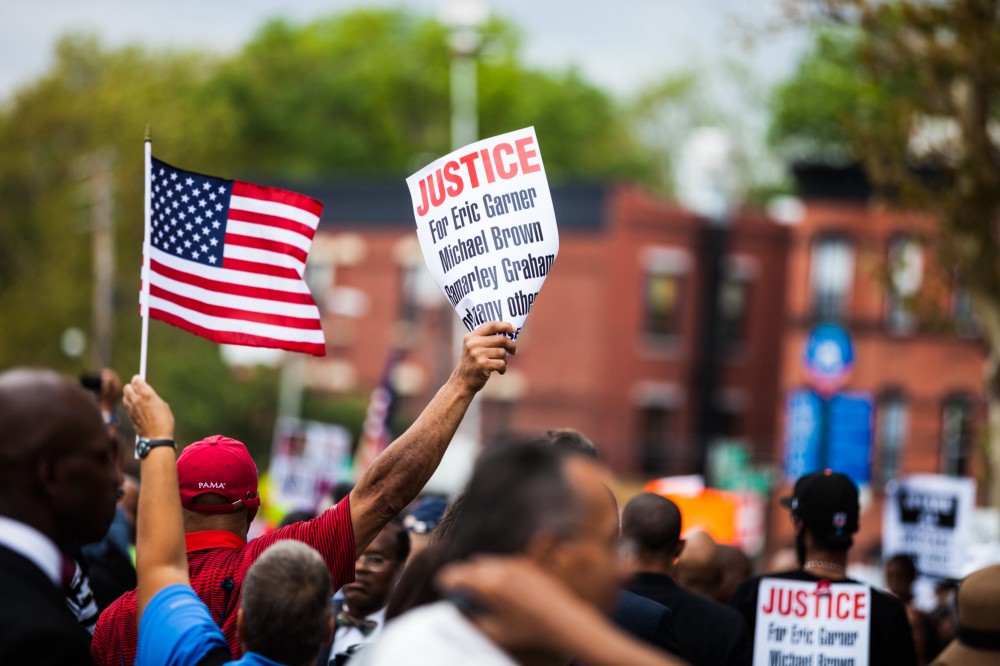Below is the blog I shared with the Financial Health Network staff in the wake of the murder of George Floyd at the hands of police and the protests and civil unrest that have followed:
Putting emotions into words is hard right now. Like you, I am heartbroken and outraged about the state of the world we live in, where the mere act of living life as a black person is fraught with danger, disrespect and dehumanization. I am mourning the lives of George Floyd, Breonna Taylor, and Ahmaud Arbery. I am overwhelmed by the peaceful protests in scores of cities across this country and around the world, heartened that so many people give a damn, and I am saddened by the destructive rioting. I am worried about the impact of the protests on both the mental and physical health of the protestors, especially in light of the pandemic that still has us in its grip. Like you, I am still processing it all.
I can’t say this enough right now: The Financial Health Network condemns any and all forms of racism and discrimination, and we recognize the pain and trauma being inflicted on our black colleagues. But it is also no longer enough to say these same words, the ones we say over and over again every time a new racist act takes our breath away. It is no longer enough to work for a mission-based organization focused on systemic change if we are not actively working to dismantle systemic racism.
We know from our own research that financial health is not distributed equitably. Black and Latinx people earn less money than white people, and they own far fewer assets. They live in neighborhoods with greater levels of pollution and with fewer amenities like access to fresh, healthy foods. They also have less access to health care and insurance, and so they are more likely to suffer from chronic health conditions that reduce their life spans. If we expect to improve financial health for all, then we have no choice but to consider how we can leverage our assets and capabilities to help dismantle systemic racism. Our DEI strategy has an External Impact pillar, and the recently-expanded DEI Committee is working to develop a plan. There is much the Financial Health Network can do to use its reputation and position and relationships to push for change in both policy and practice.
This work is also deeply personal. My long-held beliefs about the fundamental importance of justice and equality have been the primary motivation in my life, steering me to journalism, public policy, community development, and now financial health. But I haven’t always used my privilege to call out racism, to be an anti-racist. I have more work to do, and while I won’t always get it “right,” I am redoubling my commitment to living my values out loud and being an effective co-conspirator.
Some of you know that my husband, Jonathan Eig, is a writer. He mostly writes biographies, and he is currently working on a biography of Martin Luther King Jr. Whenever Jonathan takes on a new subject, my kids and I learn along with him. One of the reasons he chose to write an MLK biography is because, while society needs him now more than ever, his legacy has been sanitized beyond recognition. Pop culture celebrates “I have a dream.” But by the end of his short life, he had moved beyond civil rights and was advocating for major economic reforms, starting with guaranteed annual incomes for all. His commitment to the Poor People’s Campaign damaged his popularity, and when he was assassinated in 1968, the important work of economic justice remained unfinished. In many ways, what we are experiencing as a nation right now is the result of that unfinished work.
The Financial Health Network has the opportunity, the responsibility, to take up Dr. King’s unfinished work. We cannot do it alone, but we must not turn away from the task.
For more information, please see the Financial Health Network’s public statement speaking out about racial discrimination.

